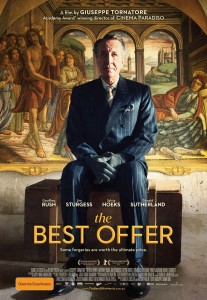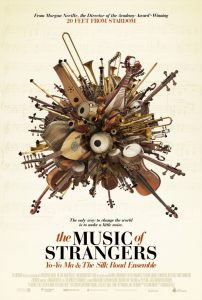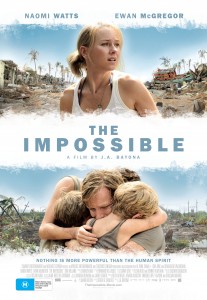 A superficial scrutiny of The Best Offer might assert it to be a slightly unpalatable story of love-across the-age-divide between Virgil Oldman (Geoffrey Rush), successful antique art auctioneer with his own priceless collection of female portraits, and Claire Ibbetson (Sylvia Hoeks), twenty something agoraphobic orphan of life-long antique collectors. However the film eventually unfolds as a critical examination of forgery and authenticity, summarised best by Billy Whistler (Donald Sutherland) when he remarks that ‘everything can be fake… joy, pain, hate, illness, recovery… even love.’ When coupled with Virgil’s early admission that ‘there is always something authentic in every forgery’, we have Director Guiseppe Tornatore’s premise; the tangible difference between something authentic and something forged and if any of it actually matters, or whether the only essential thing is what it made you feel.
A superficial scrutiny of The Best Offer might assert it to be a slightly unpalatable story of love-across the-age-divide between Virgil Oldman (Geoffrey Rush), successful antique art auctioneer with his own priceless collection of female portraits, and Claire Ibbetson (Sylvia Hoeks), twenty something agoraphobic orphan of life-long antique collectors. However the film eventually unfolds as a critical examination of forgery and authenticity, summarised best by Billy Whistler (Donald Sutherland) when he remarks that ‘everything can be fake… joy, pain, hate, illness, recovery… even love.’ When coupled with Virgil’s early admission that ‘there is always something authentic in every forgery’, we have Director Guiseppe Tornatore’s premise; the tangible difference between something authentic and something forged and if any of it actually matters, or whether the only essential thing is what it made you feel.
Tornatore reveals fleeting cautions to Virgils romantic naivety when he admits that the ‘regard [he has] for women is only equalled by [his] fear of them’. However the relationship between Claire and Virgil develops precariously from professional to romantic, with some advice from Virgils’ engineer associate and friend Robert (Jim Sturgess), brilliant in fields of both engineering and women. Billy, Virgils’ accomplise and ‘trusty procurer of women’, all the while enables him to underhandedly cultivate his priceless collection of painted women by buying the portraits Virgil signals that he wishes to acquire. He keeps his painted women in a secret room in his house, much like the one in which Claire lives, and shows no-one, until Claire. There are many parallels to be drawn between Virgils relationship with Claire and the one he has with his portraits; in both he regards the women with frightening awe and yearns to be the sole beholder of their beauty. Much like the art he so covets, he himself is ancient; ancient in his ideals and understanding of gender roles, and is yet to encounter the emergent women in his modern age.
The combination of minimal and restrained dialogue, reoccurring visual compositions which reveal Virgils personality disorders and lack of human empathy and a motif of clocks and time help to colour some of Tornatore’s more abstract themes, but ultimately detracts from the viewers’ capacity to empathise with the characters. Although the film is an honest portrayal of the reality of a modern existential existence, some viewers may find its conclusion profoundly unsatisfying.
The Best Offer is released in Australian cinemas on 29th of August through Transmission Films, and is also part of the Melbourne International Film Festival.






I enjoyed your review of “The Best Offer,” Isabelle, though I think I liked the film more than you. I write a blog that includes movie reviews and they are also on IMDB. If you are interested in what I said about this film, you can check it out here.
http://rosythereviewer.blogspot.com/2014/07/the-sturm-und-drang-of-writing-blog.html
Rosy